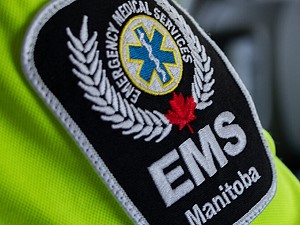 Prov of MB Media Release
Prov of MB Media Release
The Manitoba government is strengthening emergency care across rural and northern Manitoba through the introduction of advanced care paramedics (ACPs) throughout the province, announced Health, Seniors and Long-Term Care Minister Uzoma Asagwara.
“We’re expanding the scope of paramedicine in the province, starting with clinical service leaders stationed in communities throughout rural and northern Manitoba,” said Asagwara. “The previous government denied paramedics the opportunity to enhance their training outside of Winnipeg. This is one step we’re taking to ensure that when there’s an emergency, a trained health-care professional can respond on site as quickly as possible.”
Clinical service leaders (CSLs) with ACP training are the first Shared Health paramedics to practice at the ACP level. Fourteen clinical service leads (CSLs) have been strategically located in seven rural and northern areas of the province – Portage la Prairie, Flin Flon, Dauphin, Ashern, Neepawa, Swan River and Lac du Bonnet – noted the minister. CSLs respond to medical emergencies in rapid response vehicles; they do not transport patients but their advanced training and skills provide more definitive pre-hospital care on the scene, added Asagwara.
“The introduction of ACPs in rural Manitoba is a very exciting initiative that provides patients in more remote and less populated parts of the province with enhanced care before they get to a hospital, while helping our emergency response system to be more nimble and responsive at the same time,” said Scott Noble, executive director of emergency medical services operations, Shared Health. “Equally important is that this initiative supports paramedics who have told us about their long-standing desire to practise at this level and to have better opportunities for career advancement.”
“This is an exciting time to be a paramedic in rural Manitoba,” said Bryan Collier, advanced care paramedic and clinical service leader, east zone, emergency response services, Shared Health. “We’ve seen the needs of the public continue to grow so having a higher scope of care and the ability to provide the type of care people would receive in an emergency room to our communities is vitally important.”
The introduction of ACPs to rural Manitoba will also support ongoing efforts to recruit and retain paramedic staff, providing primary care paramedics with opportunities for career advancement, noted the minister. Paramedics with an ACP designation will have the opportunity to practise at the ACP level, enabling them to fully utilize their skills for the benefit of rural and northern Manitobans, added Asagwara.
